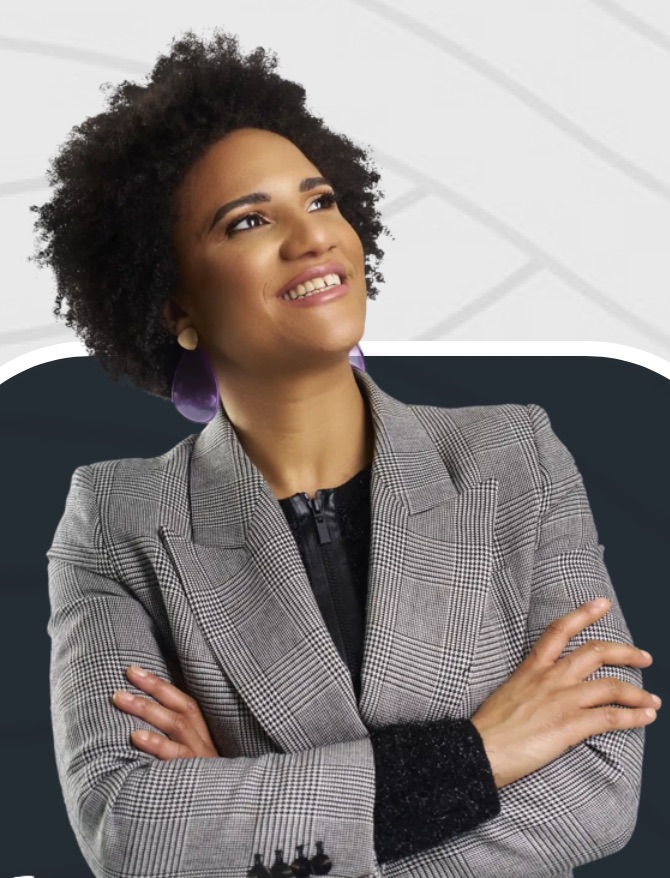In a world increasingly shaped by complex identities and global intersections, some voices rise to offer clarity, reconciliation, and #vision. One such voice belongs to a remarkable woman whose personal journey from the corridors of African peace missions to the pages of international literature has become both a healing process and a call for #unity.
Nancy Dzokoto Pomenya was born in Dole, a small medieval town in eastern France. With over 15 years of experience working on Africa-Europe partnerships within French, European, and African #diplomatic institutions, she brings to life a powerful autofiction book rooted in her personal quest for identity. As a French-Ghanaian woman navigating two continents, her writing explores the emotional legacy of cultural duality and the healing potential of #dialogue, love, and métissage across borders.
Intercultural communicator and Washington Morning author Neus Flores recently interviewed her to talk about writing, identity, and the #emotional landscapes scarred behind global conflicts.
When did you start writing, and what inspired you to begin?
I began writing after an intense and #transformative experience in Somalia, where I served as Special Assistant to the Head of the African Union Peacekeeping Mission. While I was warmly welcomed by some African colleagues, I was also faced with frightening #threats to my life — a shocking reality, especially as someone arriving with #goodwill and a deep connection to the continent through my Ghanaian heritage.
That moment forced a deep #introspection within me. All of a sudden, as a mixed-race woman, I found myself belonging nowhere. In Africa, I was seen as white; in Europe, as black. This dissonance intensified my identity #crisis.
So, writing became a refuge to me — a way to imagine a new world where Afropeans like myself could serve as the #bridge between Africa and Europe, thus reconciling both their histories and #healing their wounds. And I made a decision: if the world didn’t have a place for me, I would create it through my own storytelling.
The subjects of your book Elikem l’Afropéenne are very international. Would you describe it as a globalized project?
Absolutely. While my book may seem Afro-centered at first glance, it ultimately speaks to a universal search for identity — a human #concern, not just a cultural one. It’s addressed to anyone trying to understand themselves, especially those with layered or #hybrid identities.
I firmly believe that people with multiple cultural backgrounds have a unique potential to act as #mediators in societies. If they can find peace within themselves, they can help foster peace in the places they call home — and subsequently, in the lands of their heritage.

Were you influenced by other artists or writers in your journey?
Yes, profoundly. Amin Maalouf has had a major influence on me. My book even begins with one of his quotes:
“Each of us should be encouraged to embrace our own diversity, to see our identity as the sum of our various affiliations, rather than reduce it to a single belonging elevated to a supreme identity — an instrument of exclusion or even of war.”
Another key inspiration is Léonora Miano, particularly her book Afropean Soul, which imagines a post-racist, post-colonial #utopia.
Their work opened my eyes to the political power of embracing #complex identities.
Do you believe your book will resonate internationally?
Yes, I do. The perspective I bring — that of a mixed-race woman, told from an emotional and #feminine standpoint — is still too rare in global narratives. I explore how emotions like fear, jealousy, and #hatred continue to shape not only personal relationships but international #politics as well. These are the still #unresolved inheritances of history.
We cannot build a peaceful future if we ignore the emotional undercurrents driving today’s conflicts. Love is universal, and so is fear. If we truly want to replace war with peace, we must understand the emotional #logic of our time.
How do you think your work speaks to other Europeans, particularly of your generation?
I believe that Europeans — especially the younger generations — will find a huge resonance in my work. At its core, the European Union is founded on the principle of “unity in diversity” and on the protection of universal human #rights. After centuries of conflict, many Europeans treasure these values dearly.
My work echoes that ethos and it invites Europeans to embrace complexity, to listen, and to #connect across divides. That’s the inner soul of Europe in its core, and due to the latest political events, I think millions of people are ready to engage with it more profoundly than ever before.
What advice would you give to a student or young writer just starting out?
Just write from the heart. Art is a powerful outlet for expressing emotions, and it can be deeply #therapeutic. I would encourage students to trust that their stories are valid — especially those who feel vulnerable or unheard. Your stories matter!
While writing requires self-discipline and #momentum, it also brings great joy. It allows you not just to consume the world, but to #create it instead. That’s a very empowering feeling — to write your own narrative, to imagine a better tomorrow, to never stop believing in your own future.
Could you recommend any current art projects or #cultural experiences in Spain that inspired you?
Yes, one experience stood out during a recent visit to Córdoba: the Mosque-Cathedral. This architectural #marvel embodies centuries of complex interaction between religions. For me, it became a symbol of #interfaith dialogue — a place where spiritual and cultural diversity #coexists in one single and unique sacred space.
While its history is layered and sometimes painful, the building itself inspired a vision of #unity beyond borders. It’s a reminder that coexistence is not just possible, but also very #beautiful.
Article written for the Washington Morning by author Neus Flores.
To read other cultural articles by Neus Flores please click here.











